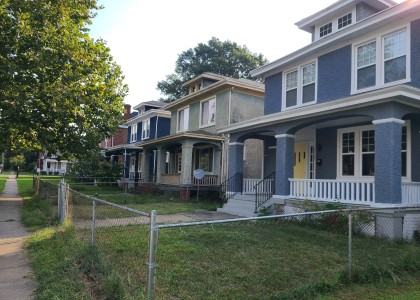As US cities push forward to meet their clean energy goals, they will need a strong, capable energy efficiency workforce to make critical energy-saving upgrades and investments. Our new report, Through the Local Government Lens: Developing the Energy Efficiency Workforce, shows how cities can take an active role in growing the workforce and extend its benefits to underserved communities.
The Energy Efficiency Workforce
Local governments across the United States are increasingly prioritizing energy efficiency, and there are a lot of efficiency jobs out there – 2.25 million. These jobs span diverse industries, from construction to professional and business services. And they are projected to keep multiplying, with a 9% increase predicted for 2018.
With the right policies and practices, local governments can develop and grow this robust workforce. From our research and more than 25 interviews, we identified a few key strategies cities can take.
Collaboration is critical
Local governments can partner with stakeholders across the public, private, and nonprofit sectors. For example, they can work with community colleges to identify skill gaps, state government to promote trainings and incentives, and utilities to promote existing trainings or identify new ones.
Boston, MA. City of Boston staff are actively working with both National Grid and Eversource, Boston’s gas and electric utilities, respectively, to leverage energy efficiency dollars for workforce training. Utilities will pay the tuition for facilities staff from Boston, Cambridge, and other municipalities in the greater Boston area for the 74-hour Building Operator Certification training. Upon completing the training, municipal building engineers will be able to operate and maintain local government buildings more efficiently, saving energy and helping both utilities meet energy efficiency targets.
Balance worker supply with energy efficiency demand
Cities can encourage demand for energy efficiency workers by enacting efficiency policies and programs. They can also leverage citywide energy and sustainability planning to align training programs around current and future city-, state-, and utility-funded efficiency incentives.
Vancouver, BC. Vancouver launched several initiatives to teach skills required to build in accordance with its Zero Emissions Building Plan. The city plans to subsidize trainings for builders and developers to learn more about passive house design standards, technical building requirements, economic and energy impacts, and energy modeling tools. Additionally, Vancouver will contribute funds to the Zero Emissions Building Centre of Excellence, a nonprofit-run collaborative platform that will compile and disseminate zero-emission building educational resources to the local building industry. The center is expected to launch this summer.
Increase diversity and equity in the energy efficiency workforce
Any locally driven workforce development strategy should consider the needs of people who are underrepresented in the energy efficiency sector. For example, cities can direct city- or industry-led trainings to low-income community members by coordinating with organizations that understand their needs. They can also work to ensure that minority- and women-owned businesses are aware of efficiency project opportunities in public buildings.
New Orleans, LA. Through partnerships with the US Green Building Council and Louisiana and Delgado Community Colleges, the New Orleans Office of Supplier Diversity works to train small and disadvantaged businesses on green economy initiatives, for example, by holding a test preparation class for the Leadership in Energy and Environmental Design exam. The city also works with APTIM, Entergy New Orleans’ efficiency program administrator, to teach local builders and operators high-performance construction principles through the Green Professional Operations and Maintenance (GPRO) Essentials course. New Orleans offers this program to drive participation in its Downtown Energy Challenge and works to include from individuals from local workforce development organizations such as the Urban League of Louisiana.
Cities and our clean energy economy
The opportunity is clear for cities interested in leading an equitable transition to a clean energy economy. By investing in a robust, diverse, and local energy efficiency workforce, cities can save energy, reduce pollution, and sustain high-quality jobs for their residents. In this report, we identify additional strategies for cities to make these goals a reality, and we highlight an array of cities that are moving in the right direction.
David Ribeiro contributed to this blog post and report.




